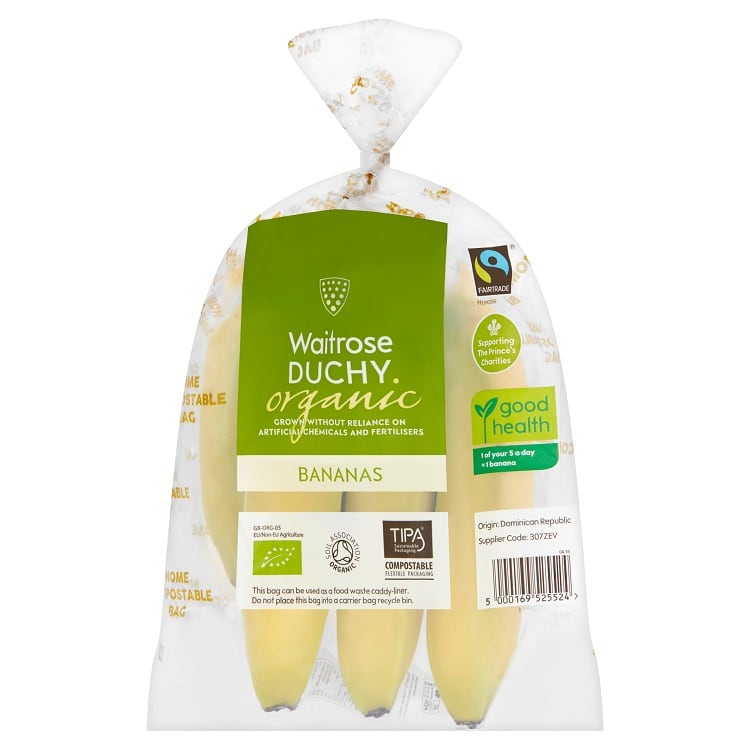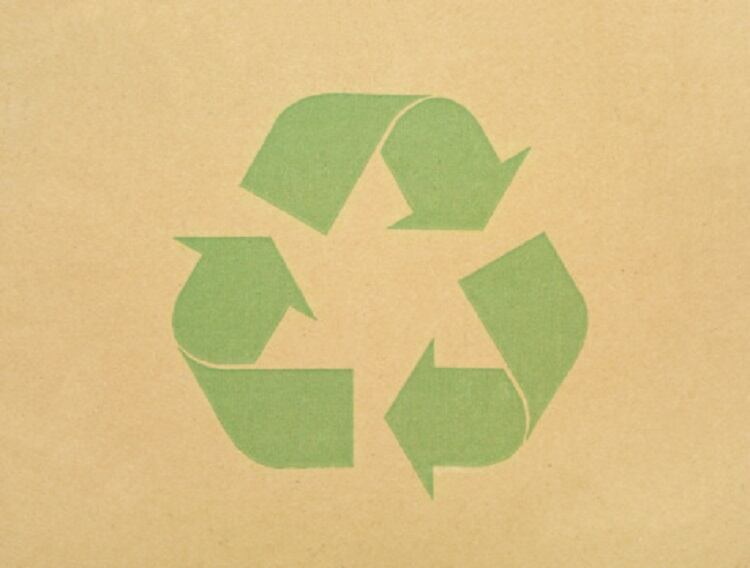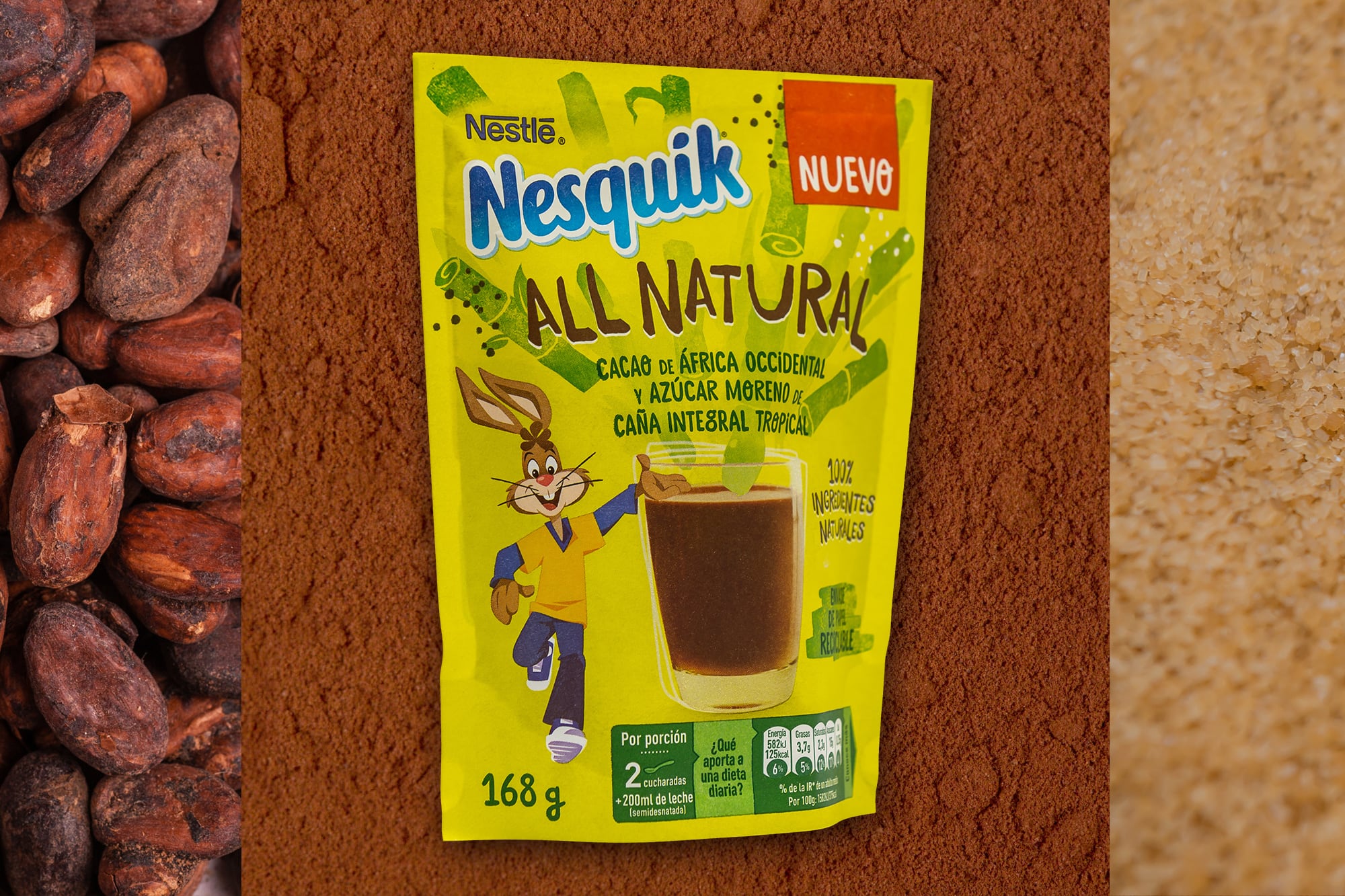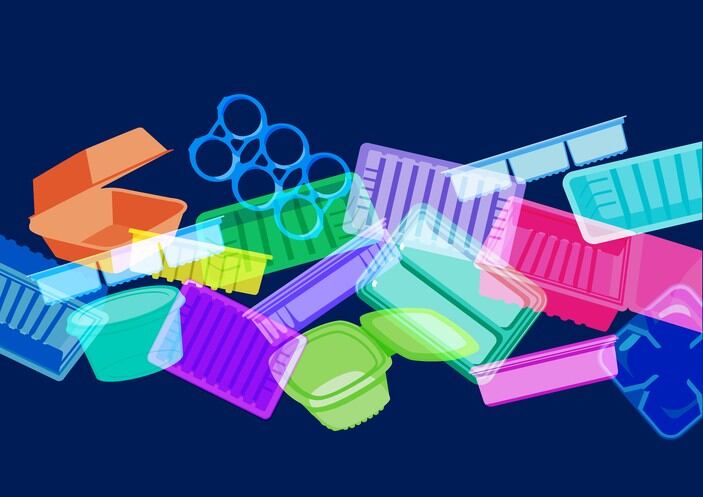Plastic is used across the food industry to protect food and extend shelf life. However, plastic pollution and single-use plastics are devastating the environment.
According to Plastic Oceans International – which advocates to end plastic pollution – a plastic bag has an average ‘working life’ of just 15 minutes, yet approximately 500 billion plastic bags are used worldwide per year.
Turning to the wider use of plastics, 300 million tonnes of the cheap and versatile material is produced every year, 50% of which is for single-use purposes.
“Single-use plastic has very severe impacts on our health and on our planet,” said Julia Vol, who heads up public affairs at TIPA Corp.
“And flexible packaging is even more challenging than the rigid packaging that we use in water bottles, for example. Rigid plastic can be recycled.
“The problem with flexible packaging is that it is very difficult to recycle. It is too lightweight, too complex, too multi-layered, and too contaminated with food.”
This makes for economical, technical, and regulatory challenges, according to Vol, who told delegates at this year’s Seeds and Chips conference that even in developed economies such as Europe and the UK, just 5% of the flexible packaging put on the market is recycled.
TIPA’s alternative packaging solution aims to reduce the amount of single-use, flexible packaging produced around the world.
A bio-based solution
After five years of research and development, TIPA launched its bio-based, fully compostable packaging. The company claims is just as transparent, durable and impermeable as conventional plastic packaging.
“It mimics the properties of flexible, conventional plastics but without the negative functionalities associated with,” said Vol.
Being fully compostable means that consumers can put it in their home composter bin and it will decompose within 180 days. The packaging can also be placed in a consumer’s organic bin bag, along with scraps from the kitchen, to be collected for industrial composting “and safely returned to the ground”.
“It has exactly the same end life as the food it protects” – Julia Vol, director of public affairs, TIPA Corp
TIPA’s compostable packaging has already started to penetrate the market “thanks to pioneering and ambitious brands”, Vol continued.
Where to find TIPA packaging?
Two brands to have adopted TIPA’s packaging for own-label products include Waitrose & Partners and Irish vegan brand The Happy Pear.
The latter uses it to wrap two products, its granola and sprouts tray. The Happy Pear tells its consumers to “think of it like the peel of an orange. It protects the food inside, and when it’s no longer needed it goes back to the earth”.
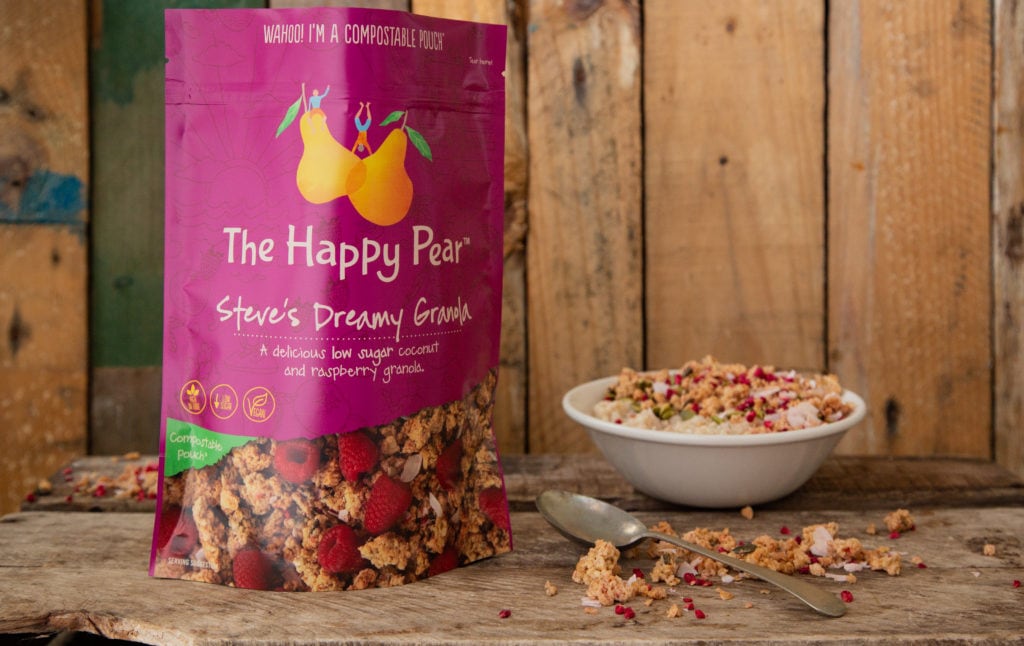
Waitrose & Partners announced plans to package its own label Duchy Organic bananas in the home compostable bag in March this year.
Bananas produce carbon dioxide which, when combined with ethylene absorbents from a compostable bag, is known to more than double fruit lifespans without the need for refrigeration.
In addition to protecting the quality of the bananas, the compostable bag also removes the need for plastic banana box liners. The British supermarket retailer estimates moving to the bag will save approximately 18 tonnes of plastic per year.
“We’re excited that Waitrose Duchy Organic bananas are the first of our fresh produce to be packaged in our ground-breaking home compostable bag,” stated head of CSR, health and agriculture Tor Harris.
“This move shows the continued efforts we’re making to reduce unnecessary plastic packaging wherever we possibly can and is part of our pledge to make all packaging either widely recyclable, reusable or home compostable by 2023.”


